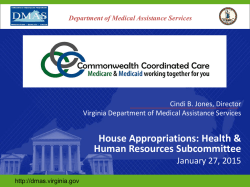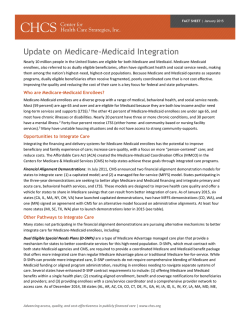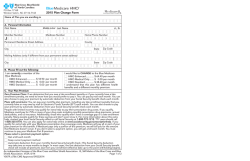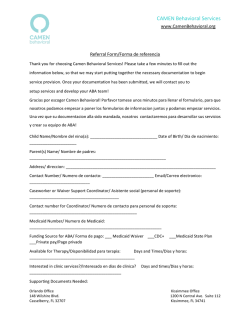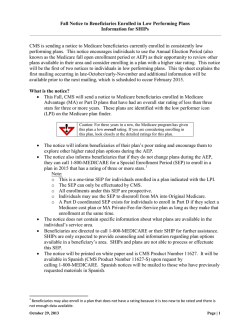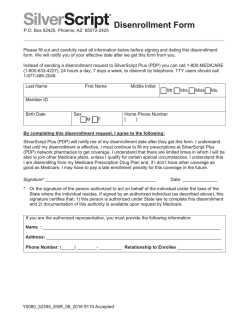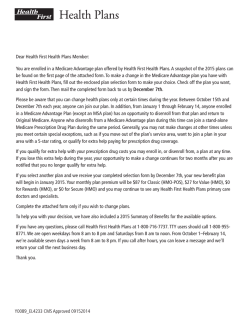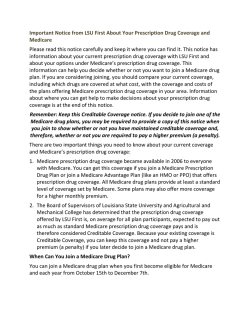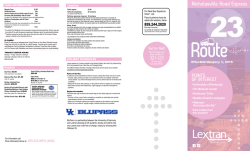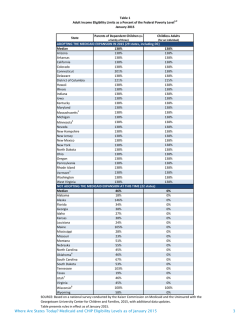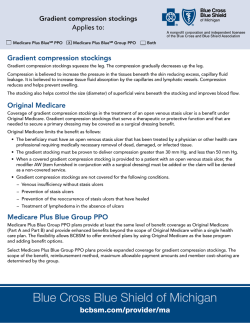
Presentation
Virginia CCC Status Update: Lessons Learned and the Path Forward… Humana Gold Plus IntegratedA Commonwealth Coordinated Care Plan January 27, 2015 Key Program Areas of the CCC are going well • Care Coordination: Members who give us the opportunity to engage with them see the value of care coordination. • Program Simplicity: Coordination of Medicare and Medicaid services through one health plan. Simplicity for member and provider. • Additional Benefits: Members have access to extra benefits that they do not have access to under Medicaid or Medicare FFS. 2 How Humana is Helping: Member Success Story • • • Walking with a cane • Unable to eat solid foods • Several health conditions • Significantly overweight Care Coordinator (Ms. June) Assigned • Regular communication • Identified challenges in PCP relationship • New PCP selected Results • No longer utilizes cane • Able to eat solid foods again; Weight is now within normal limits • Preventive health care services completed • Completes Medicare Rewards for gift cards • Utilizes over-the-counter (OTC) benefit Ms. Spring 3 Care Coordination • Care Coordination is a collaborative effort and a person-centered process that assists the members in gaining access to needed services. • What a Member Receives From Care Coordination? • Care Coordinator - Plan Representative • Interdisciplinary Care Team (ICT) • Identification of resources for the members • Housing and meals • Connection to local agencies e.g. Area Agency on Aging • Gyms that assist disabled individuals on exercise equipment • Support Groups • Provide assistance facilitating authorizations or arranging for transportation; this helps to link the member to services and support identified in the plan of care. • Plan of Care (POC) 4 Additional Benefits Care Coordinator Dental $0 Copay Doctor Visits & Hospital Stay Vision $0 to Low Prescription Copays Podiatry: 12 Visits Mail Order Prescriptions $35/Month for Over-The-Counter Items Transportation SilverSneakers Membership Assistive Technology ($600) Well Dine Meal Delivery After Approved Overnight Hospital/Nursing Facility Stay Quitnet Smoking Cessation Program Expanded Mental Health Services Enhanced Respite Care (240 hrs. above the 480 hr. benefit) Pest Control Hearing Healthy Rewards 5 Program Simplicity High degree of successful and frequent collaboration between DMAS, CMS, MMPs and provider associations. In addition to ensuring the care needs of CCC members, we continue our commitments to: • One single member ID card • 180 day Continuity of Care • Use the current billing forms for Medicare and Medicaid claims • Pay clean claims within 14 business days • Pay interest on payments of clean claims (in whole or in part) that are made more than 30 days after submission of the claim • Pay nursing facility services no less than the Medicaid and Medicare rates 6 Program Challenges • Higher than anticipated opt-out rates program-wide – Flexibility and member choice is crucial, but there is no current minimum lock-in period for members. – Limited opportunity to engage with members and demonstrate value. – Member “churn” leads to high administrative costs for providers and MMPs as well as member confusion. • Lower than expected provider participation – Lag in provider engagement and understanding of the program – Impacts passive assignment and member participation • Challenges with obtaining complete and accurate member data in a timely manner – Higher than expected number of unable to locate members – Data communication delays from state 7 Solutions/Member Retention Strategies • There are pockets across the continuum of provider types unaware of what is/is not covered in the 180-day Continuity of Care period and requirements creating opt-outs and provider confusion. What we are doing about it: • Ongoing evaluation to ease impact of new auths from non-participating PCPs • Ongoing education efforts with providers • Diligent monitoring of expiring Continuity of Care authorizations • MMPs did not have access to Medicare Part B claims/PCP information to gain visibility into full complement of providers/services • MMPs only provided access to Medicaid claims/authorization history • Hampered initial PCP/ancillary provider contracting efforts • PCP not in network is #1 opt-out reason What we are doing about it: • CMS now shares Medicare data enabling us to identify their current provider. • Utilizing claims data to conduct targeted contracting for primary/specialist providers. 8 Budget Amendments • Item 301 #6h: “The Department of Medical Assistance Services (DMAS) shall evaluate the costs incurred by Medicaid providers to participate in the Commonwealth Coordinated Care program.” • Item 301 #7h: “The Department of Medical Assistance Services (DMAS) shall require Medicare and Medicaid Managed Care Plans to develop and implement electronic claims processing portals by July 1, 2015, as a condition of participation in the Commonwealth Coordinated Care program.” 9 The Path Forward : Areas of Opportunity • Further analysis/focus groups on opt out members • Continued efforts to increase Humana’s provider network to ensure access to care • Increased education of the program and its benefits for eligible beneficiaries, providers, and stakeholders • Innovative care delivery approaches 10
© Copyright 2026
